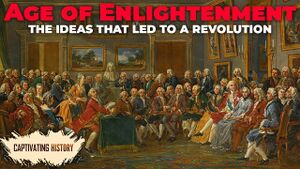Enlightenment
ENLIGHTENMENT IN LITERATURE
ENLIGHTENMENT PERIOD
It was a period between the 17th Century and 18th Century. It is called the age of reason[1] where our head is before our heart. Scientific methods, navigation discoveries and liberal ideas together impact on the way society is made up. Liberal ideas like John Locke's [2] or Montesquieu's separation of powers influeced American and French Revolution. As this period is based on knowledge and evidence, there was a big confrontation with the church and its doctrine based on faith.
Literature Writing
The eighteenth century in English literature has been called the Augustan Age, the Neoclassical Age, and the Age of Reason (Enlightenment). The term 'the Augustan Age' comes from the self-conscious imitation of the original Augustan writers, Virgil and Horace, by many of the writers of the period. Specifically, the Augustan Age was the period after the Restoration era to the death of Alexander Pope (~1690 - 1744).
One of the most defining features of 18th-century British literature is the rise of the novel. During this time, authors like Daniel Defoe (who wrote Robinson Crusoe) and Jonathan Swift (who wrote Gulliver's Travels) began to write in the lengthy, chapter-divided form that today we consider the standard for consuming literature.
There are also two important writers Alexander Pope (The Rape of the Lock and The Dunciad) and Samuel Johnson (A Dictionary of the English Language that was used till the Oxford English Dictionary was published in 1895).
Literature writers focused on scientific texts, political texts, journalistic texts and Satire.
Scientific texts making reference to all the advance in medicine, technology and industrialization.
Political texts referring to the creation of new ways of government and of society organization.
Journalistic texts informing about or promoting political ideas.
Satire making space to speak in an ironic and funny way of serious issues. A great example is Gulliver Travels by Jonathan Swift.
